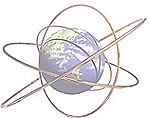Positive Improvements on the Planet
The
Light of Libya |
By Florida News Group (Originally in English)
 Libya
Libya
On May 15, Golden Year 3 (2006), the US announced that it would open full diplomatic relations with the nation of Libya. A new US embassy is now being constructed in the Libyan capital of Tripoli. The two nations had been sworn enemies for over 25 years, until Libya unexpectedly denounced nuclear, biological and chemical weapons in 2003. In February of this year, Libya even allowed US technicians to come remove and destroy chemical weapons.
According to the leader of Libya, Muammar Qadhafi, “The world has changed radically and drastically. The methods and ideas should change, and being a revolutionary and progressive man, I have followed this movement.”
Long considered one of the most oppressive regimes in the world, Libya has more recently made rapid improvements in human rights, to the extent that it has proposed the abolition of the death penalty. In terms of education, the status of women and elimination of poverty, Libya is now among the leading nations in Africa. Much of the nation’s new openness to change is attributable to Qadhafi’s son, Sayf, who graduated from the London School of Economics, has dedicated himself to fostering closer ties with the West, and has spoken openly for democracy in Libya.
Libya is now opening its stunning landscape—including 2,000 km (1,243 miles) of pristine coastline—to foreign tourism. Technology such as cell phones, internet access, and satellite television has become widely available. Meanwhile, Libya retains a flourishing traditional culture of music, dance, arts and religion. Most local television programs feature traditional Libyan musicians.
Along with having the largest oil reserves
in Africa, Libya has another perhaps more precious treasure, buried 500
meters beneath the Sahara desert—vast reserves of pure fossil water
from the last Ice Age. There is enough fossil water to develop agriculture
across the Libyan desert, as well as to supply drinking water for several
hundred years. The government has been pumping out the water through the
Manmade River, a multiple-phase project that began supplying water to
Tripoli in 1996. The River is considered by many experts to be the world’s
largest engineering project. It will not be complete for another 25 years.
But by the time Libya has run out of fossil water, desalination from the
Mediterranean will be feasible, and the nation will have developed into
one of the prized jewels of North Africa.![]()